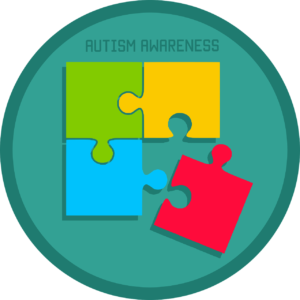Cohesion, Bonding, Love, and Little Awareness can make an Aspie Member Live in a Well-Knit Family
Aspergers Syndrome can affect people of all age-groups. When kids are affected, it is easy to address the issue as there are schools and curriculum which help an Aspie kid to develop in their own way. However, many spouses discover that their partner has Aspergers Syndrome after years of marriage. A sibling too, finds that his loved brother or sister suffers from meltdowns while playing a game. These affect social bonding.
Experts point out that it is still possible to maintain a well-knit family with Aspie member living in it even with outbursts, grumpy behaviors, or uncontrolled emotions. Love, understanding, and little awareness are some of the key factors which help a family to survive happily. Each member can grow – including the one with Autism Spectrum Disorder (ASD).
Proactive Actions
Experts point out that in families where there is one Aspie child and another who is not, a “treatment team” must be formed to address the cohesion between the siblings. For instance, the kids must be told that parents are not really being partial to their sibling but only addressing some concerns because the sibling needs special requirements.
The family members should also attend Individualized Education Plan (IED) to ensure that the kids know why a separate curriculum is allotted for the Aspie kid. Support and understanding go a long way in making Aspergers kid happy.
Interactions with Parents
Parents should ensure not to categorize the Aspergers child as a different child but similar to his siblings. The caregivers must focus on the strong abilities and knacks of the Aspie kid rather than highlighting the negative or weaknesses. It is prudent not to tease him or rebuke him for his social interactions. Some space and room for expression would help an Aspie kid to have less meltdown and develop his abilities. In case of any difficulties, ask questions to your child.
Spousal Interactions
It is necessary to identify if either of the partners or both are having Aspergers Syndrome. For instance, a spouse may appear to be indifferent to the social cues and interactions. At another instance, there may be sudden outbursts with no meaningful connotations on what is being said in the meltdown. Without knowing that your spouse has ASD, you may feel bad or even consider separation. However, surveys reveal that it is possible to stay together in harmony if people discovered that they had Aspergers Syndrome.
During emotional upheavals, you can listen to music, stay away from the problem for a while, or Cognitive Behavioral Therapy (CBT) to improve social skills and keep erratic behaviors at bay.
Family Support
Lastly, it is difficult for Aspie to survive without family support. Often loneliness, rejection in love, and depression make it even more difficult for the Aspergers to deal with their problem. Parents, siblings, spouses, and other family members must understand and recognize ASD. Although the Aspie should not be treated as a different person with some defect or abnormality, they should be given adequate support and understanding.



